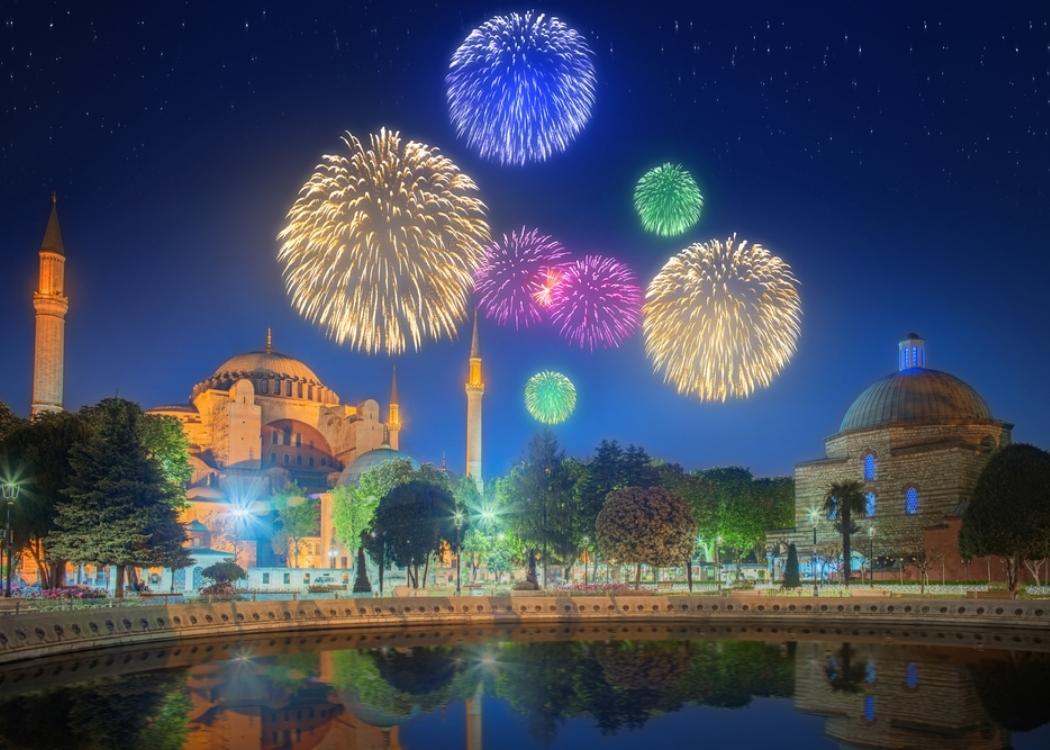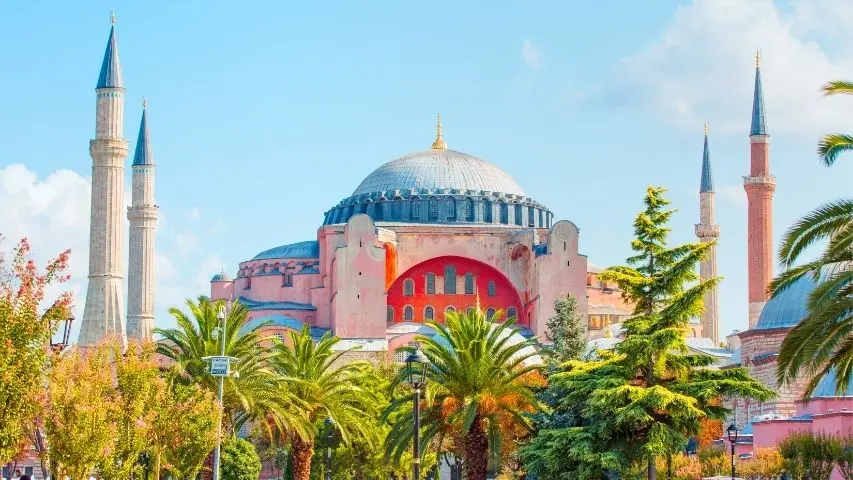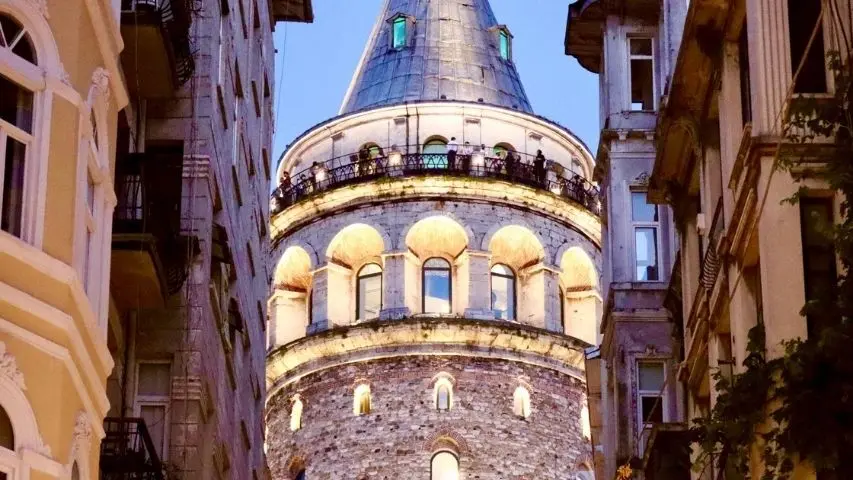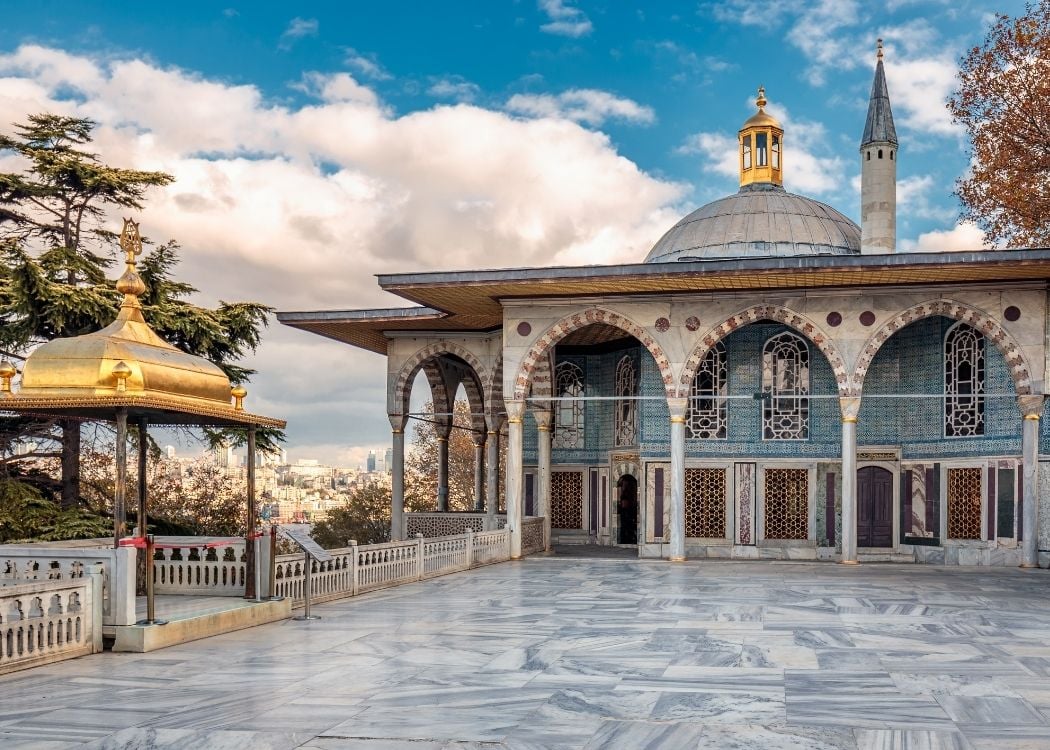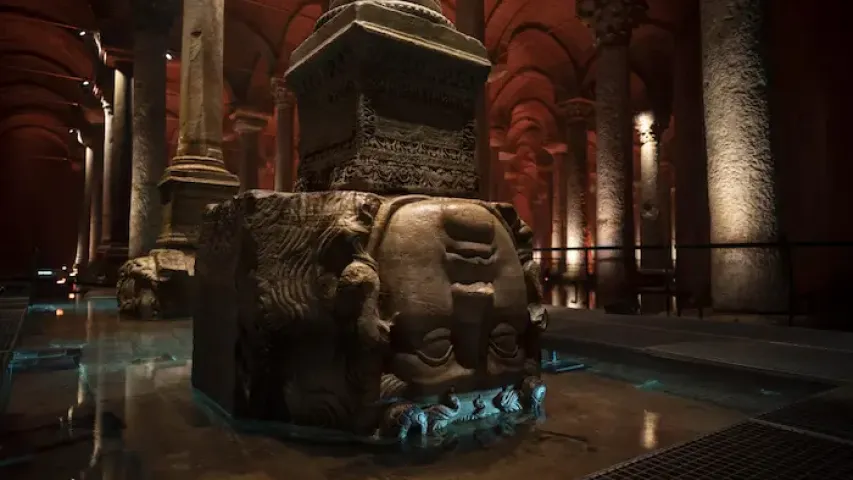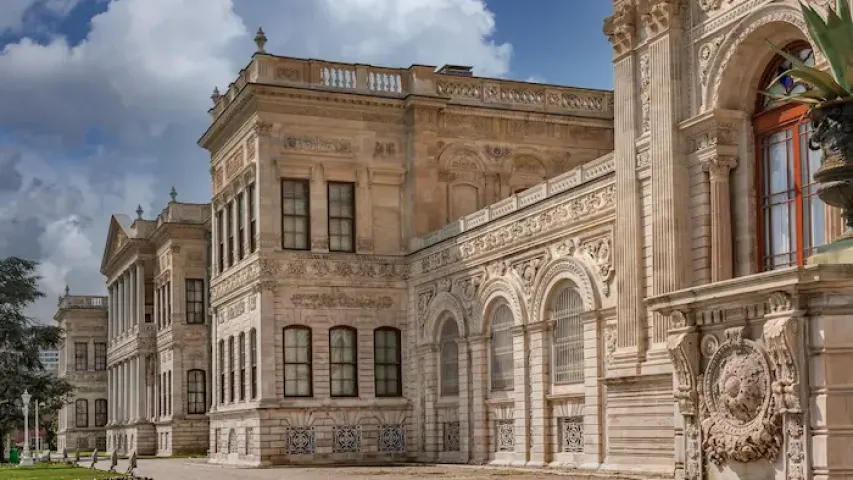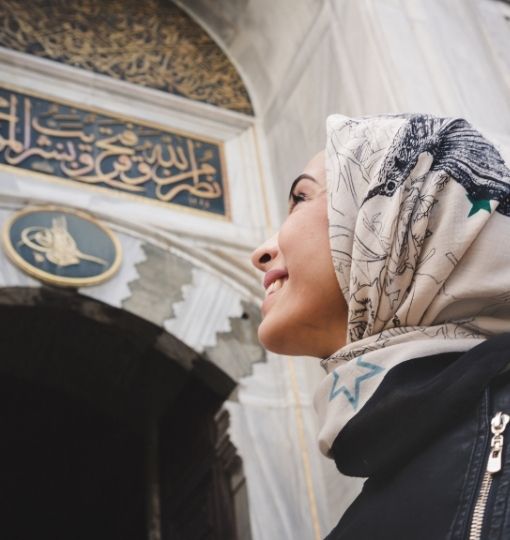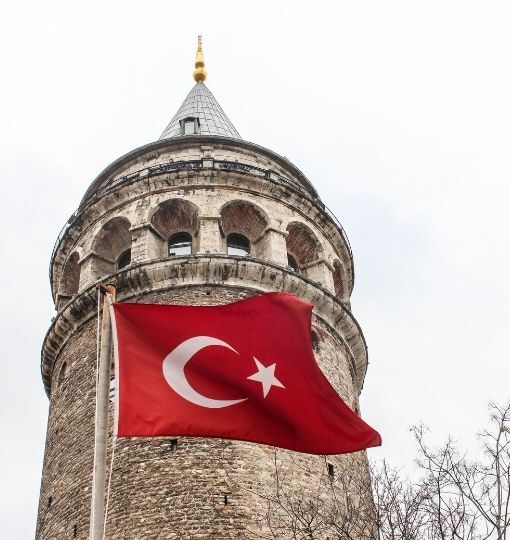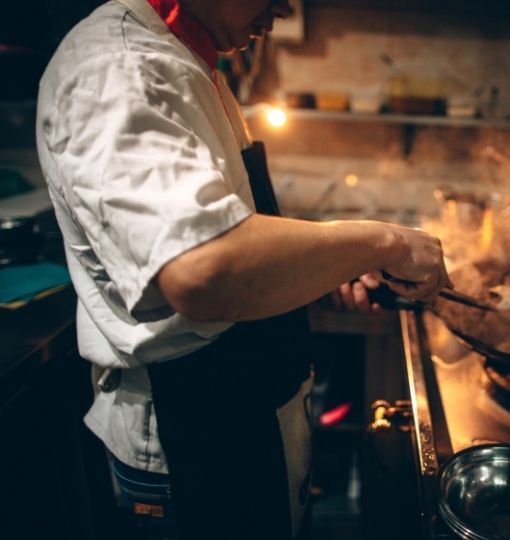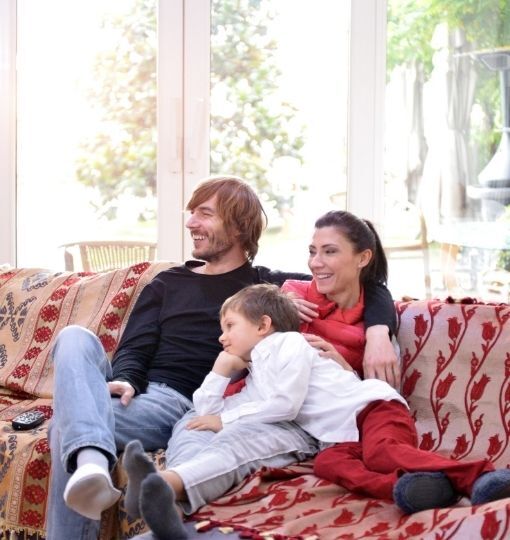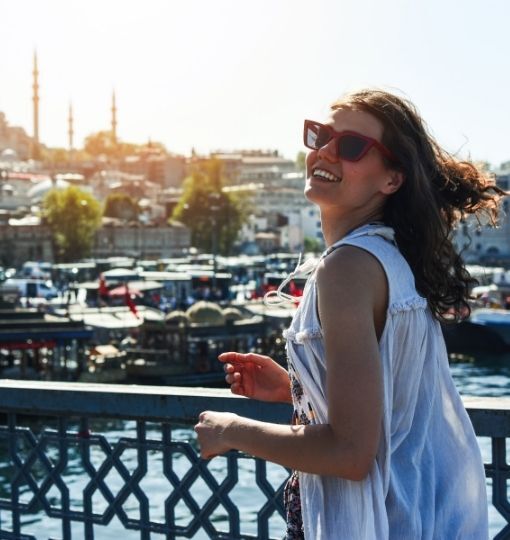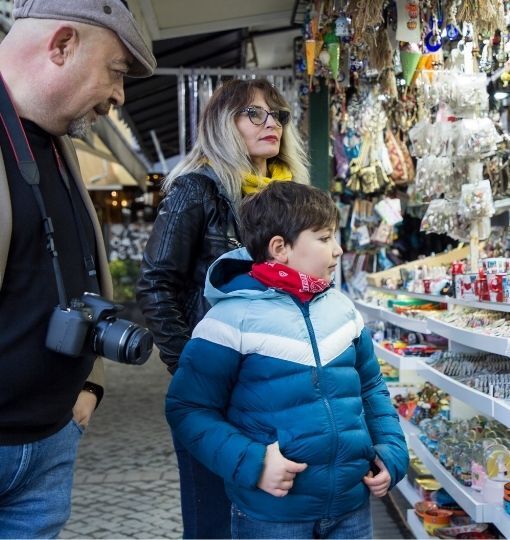Istanbul, the heart of the Ottoman Empire, is a city steeped in history and culture. Now, it is a vibrant metropolis that embraces its rich heritage while also looking towards the future. During the Ottoman era, Istanbul was a melting pot of cultures and religions, and this is reflected in the city's many festive celebrations. Perhaps the most well-known of these is Christmas, which is celebrated by Christians around the world on December 25th.
Today's Istanbul, with its rich history and vibrant culture, is a captivating destination to celebrate Christmas. The city's blend of Ottoman architecture, bustling bazaars, and charming neighborhoods creates a unique atmosphere that perfectly complements the festive spirit of the season. From exploring the historical parts of the city to indulging in traditional Turkish cuisine, Istanbul offers a truly amazing Christmas experience. Let’s have a look for the perfect gift to give yourself for Christmas: Istanbul Tourist Pass®.
In the modern era, experiencing Christmas in Istanbul and New Year's Eve in Turkey has been made even more enchanting with the introduction of the Istanbul Tourist Pass®. This innovative digital pass, crafted by a seasoned tourist agency with over 30 years of experience, opens the doors to 100+ attractions and services. With the Istanbul Tourist Pass®, visitors can seamlessly navigate the city's festive offerings, enjoying guided tours to iconic sites like the Hagia Sophia Mosque and the Topkapi Palace, skip-the-line entrance tickets to amazing experiences, discounted hop-on-hop-off bus tours, delightful cruises, and various transportation alternatives. The pass not only simplifies the exploration of Istanbul's historical and cultural gems but also enhances the Christmas celebration by providing convenient access to the city's vibrant festivities. You can fall in love with the rich heritage of the Ottoman Empire or experience the modern delights of Christmas in Istanbul, the Istanbul Tourist Pass® adds a touch of convenience and magic to the holiday experience. So why wait? Buy your Pass Now!
Early Christmas and New Year Celebrations in Ottoman Times
Christmas was not officially celebrated in the Ottoman Empire but there were early records of New Year's celebrations taking place in Istanbul. These celebrations were often held by foreign diplomats and their families, and they were attended by members of the Ottoman court and other dignitaries.
Today's Istanbul, with its rich history and vibrant culture, is a captivating destination to celebrate Christmas. The city's blend of Ottoman architecture, bustling bazaars, and charming neighborhoods creates a unique atmosphere that perfectly complements the festive spirit of the season. From exploring the Hagia Sophia and the Blue Mosque to indulging in traditional Turkish cuisine, Istanbul offers a truly enchanting Christmas experience.
1829: First Recorded New Year Celebration at the British Ambassador's Ball
In 1829, the British ambassador to the Ottoman Empire, Robert Liston, hosted a New Year's ball at his residence in Pera. The ball was attended by Sultan Mahmud II and his court, as well as by members of the diplomatic corps and the local elite. This was the first time that a New Year's ball had been held in Istanbul, and it marked a growing tolerance for foreign customs and traditions within the Ottoman Empire.
1856: Sultan Abdülmecid's Attendance at the French Ambassador's New Year Ball
In 1856, Sultan Abdülmecid made history when he attended a New Year's ball hosted by the French ambassador to the Ottoman Empire. This was the first time that an Ottoman sultan had attended a public celebration of a Christian holiday. Sultan Abdülmecid's attendance at the ball was seen as a sign of his commitment to reform and his desire to modernize the Ottoman Empire.
Christmas Celebrations in Ottoman Istanbul
Christmas was not an official holiday in the Ottoman Empire but there were pockets of Christmas celebrations among the Christian minority, particularly the Armenians and Greeks. These communities held religious services, exchanged gifts, and enjoyed festive meals, creating their own unique Christmas traditions within the Ottoman context.
Armenian Christmas Traditions
Armenians in Istanbul celebrated Christmas with a blend of religious and cultural traditions. They attended church services on Christmas Eve, followed by a festive meal called "noche buona." Traditional Armenian Christmas dishes included stuffed grape leaves, roasted lamb, and sweet pastries.
Greek Christmas Traditions
Greek communities in Istanbul also held Christmas celebrations, often centered around their churches and community centers. They attended church services, sang Christmas carols, and exchanged gifts. Traditional Greek Christmas dishes included roasted lamb, pork, and various sweet treats.
First Introduction of Christmas Celebrations
As the Ottoman Empire modernized and interacted more closely with European nations, Christmas celebrations gradually gained popularity among the city's Christian minority. Churches began holding special services, and homes were adorned with festive decorations.
The Legacy of Christmas Celebrations in Ottoman Istanbul
Despite not being an official holiday, Christmas celebrations in Ottoman Istanbul left a lasting legacy. The city's diverse communities embraced the spirit of the season, adapting and incorporating their own cultural traditions into the festivities. This legacy continues today, as Istanbul welcomes visitors from around the world to experience its unique blend of Christmas traditions.
The Rise of Christmas Markets and Festivities
In the late 19th and early 20th centuries, Christmas markets and festivities became a familiar sight in Istanbul, particularly in the Galata and Beyoğlu districts. These events attracted both locals and tourists, further solidifying Christmas as a part of the city's cultural fabric.
Evolution of New Year Celebrations in Turkish Society
During the Ottoman era, New Year's Eve was primarily celebrated by the Christian and Jewish communities in Turkey. These communities held religious services and social gatherings to mark the beginning of the new year. The wider Turkish population, predominantly Muslim, observed the Islamic New Year, known as Nevruz, which falls on March 20 or 21.
The celebration of New Year's Eve in Turkey has undergone a significant transformation over the years, reflecting the country's social, cultural, and political evolution. From its roots in Ottoman traditions to its adoption of Western customs, New Year's Eve in Turkey has become a vibrant and diverse celebration that encompasses a blend of old and new traditions.
Early New Year Celebrations in Turkey
In the early days of the Turkish Republic, New Year's Eve was not widely celebrated. The emphasis was placed on Nevruz, the traditional spring festival, which marked the beginning of the new year in the Turkic calendar. However, as Turkey modernized and adopted Western-style calendars, New Year's Eve gradually gained in popularity.
In 1926, Turkey officially adopted the Gregorian calendar, aligning its calendar system with that of most Western countries. This shift paved the way for a more widespread embrace of Western New Year's Eve celebrations among the Turkish population.
Adoption of Western Traditions
In the 1920s and 1930s, under the leadership of Mustafa Kemal Atatürk, Turkey underwent a period of rapid modernization and Westernization. This included the adoption of the Gregorian calendar and the official recognition of January 1 as the start of the new year. As a result, New Year's Eve celebrations began to take on a more Westernized form, with the introduction of Christmas trees, Santa Claus, and other familiar symbols of the Western holiday season.
The Rise of Secular New Year Celebrations
While adopting Western New Year's Eve traditions, Turkish society also integrated its own customs and beliefs into the festivities. The wearing of red, a symbol of luck and prosperity, became a common practice. Additionally, the tradition of breaking a pomegranate, believed to bring abundance and fortune, gained popularity.
In keeping with Turkey's secular traditions, Istanbul New Year's Eve celebrations focused on secular aspects rather than religious ones. Public festivities were organized in major cities, featuring fireworks displays, concerts, and street parties. These events attracted people from all walks of life, reflecting the country's diverse population.
The Influence of Globalization
In recent years, globalization has further impacted New Year's Eve celebrations in Turkey. The internet and social media have exposed Turkish people to a wider range of cultural influences, leading to the adoption of new traditions and practices. For instance, the popular tradition of New Year's resolutions has become increasingly common in Turkey, reflecting the country's growing integration into the global community.
New Year's Eve in Contemporary Turkey
Today, New Year's Eve is a widely celebrated holiday in Turkey, with a mix of traditional and modern customs. While Christmas trees and Santa Claus remain popular symbols, there is a growing emphasis on secular festivities and the celebration of new beginnings. Public events are still a major attraction, with cities like Istanbul putting on spectacular fireworks displays and concerts. However, private gatherings and home celebrations are also becoming increasingly popular, allowing people to connect with their families and friends in a more intimate setting.
New Year's Eve in Turkey has evolved from its humble beginnings as a minor holiday to a national celebration that reflects the country's unique blend of tradition and modernity. It is a time for people to come together, reflect on the past year, and look forward to the future with hope and optimism.
New Year's Eve has become a unifying force in Turkish society, bringing together people from diverse backgrounds to celebrate the start of a new year with hope and optimism. It is a time for reflection and renewal, a chance to let go of the past and embrace the future with open arms.
The celebration of New Year's Eve in Turkey reflects a unique blend of Western and Turkish traditions. While Christmas trees, Santa Claus, and exchanging gifts remain popular customs, traditional Turkish elements such as playing okey (a Turkish board game), eating a special New Year's Eve meal called "Yılbaşı yemeği," and wearing red clothing for good luck are also widely observed.
New Year's Eve has become a significant occasion in Turkish society, bringing people together to celebrate the passing of one year and the beginning of another. It serves as a symbol of unity and cultural diversity, showcasing the country's rich heritage and its embrace of modern traditions. Especially in Istanbul, visitors and locals celebrate New Year's Eve and Christmas with great events and activities.
Official Recognition and Transformation of New Year's Eve
The celebration of New Year's Eve in Turkey underwent a significant transformation during the early years of the Republic of Turkey, gaining official recognition and becoming a cornerstone of the country's cultural calendar.
1936: First Official New Year Holiday Declared
In 1936, a significant milestone was reached in the evolution of New Year's Eve celebrations in Turkey when the government officially declared it a national holiday. This decision further cemented the holiday's importance in Turkish society and reflected the growing adoption of Western New Year traditions.
1938: Mustafa Kemal Atatürk's Response to New Year Greetings
In 1938, Mustafa Kemal Atatürk, the founder of the modern Turkish Republic, sent a message of goodwill and unity in response to New Year's greetings from various sectors of Turkish society. This act highlighted the importance that Atatürk placed on New Year's Eve as a unifying occasion for all citizens of Turkey.
Atatürk's message emphasized the importance of social cohesion and national unity, stating: "The New Year is a symbol of hope and renewal. It is an occasion for us to reflect on our past, to evaluate our present, and to look towards the future with determination and resolve. Let us enter the New Year with a renewed sense of unity and purpose, and let us work together to build a brighter future for our nation."
Impact of Atatürk's Leadership on New Year Traditions
Atatürk's leadership played a crucial role in shaping the celebration of New Year's Eve in Turkey. His modernization reforms and emphasis on secularism contributed to the adoption of Western New Year traditions, while his message of unity and social cohesion helped to establish the holiday as a symbol of national identity.
New Year's Eve as a Reflection of Turkish Modernization
The official recognition and transformation of New Year's Eve in Turkey reflect the country's embrace of modernization and its integration into the global community. The holiday has evolved from its roots in ancient Anatolian traditions to become a celebration that blends Western and Turkish customs, showcasing Turkey's rich cultural heritage and its place in the modern world.
The celebration of New Year's Eve in Turkey has undergone a remarkable journey, reflecting the country's changing cultural and social landscape. From its ancient origins to its modern-day status as a national holiday, New Year's Eve has evolved into a vibrant and festive occasion that is enjoyed by people of all ages and backgrounds. It stands as a testament to Turkey's rich history, diverse traditions, and embrace of modernization.
Contemporary New Year Celebrations in Turkey
New Year's Eve has evolved into a widely celebrated and enthusiastic occasion in Turkey, reflecting the country's cultural dynamism and its embrace of modern traditions. The holiday is marked by a blend of traditional Turkish customs and Western-inspired festivities, creating a unique and vibrant atmosphere.
Current Enthusiasm for New Year's Eve
New Year's Eve has gained immense popularity in Turkey, becoming one of the most anticipated and celebrated holidays of the year. People from all walks of life eagerly await the opportunity to usher in the new year with joy, laughter, and hope.
Modern Traditions: Christmas Invitations, Street Celebrations, and Gift Exchange
While New Year's Eve remains a secular holiday in Turkey, the influence of Western traditions is evident in the way the holiday is celebrated. Christmas invitations are becoming increasingly common, particularly among urban populations, and the exchange of gifts has become a popular custom.
Street Celebrations and Public Events
Large-scale public celebrations are a hallmark of New Year's Eve in Turkey. Major cities like Istanbul, Ankara, and Antalya host vibrant street parties featuring live music, fireworks displays, and other entertaining attractions. These events draw large crowds of enthusiastic revelers eager to ring in the new year together.
Modern Traditions
New Year's Eve retains its secular nature in Turkey and it has absorbed some elements of Western Christmas traditions. Christmas trees, Santa Claus (Noel Baba), and exchanging gifts have become increasingly popular, particularly among urban populations. However, these Western traditions are often blended with unique Turkish customs, creating a distinctive New Year's Eve experience in Turkey.
Christmas-themed invitations to parties and gatherings are common, and many people incorporate Christmas decorations into their homes. Street celebrations, particularly in major cities like Istanbul and Ankara, attract large crowds eager to enjoy music, fireworks displays, and other entertainment. The exchange of gifts remains an integral part of New Year's Eve celebrations, with friends and family members exchanging presents to express their affection and well wishes.
New Year's Eve has become a significant commercial event in Turkey. Brands capitalize on the holiday's popularity by launching special promotions and marketing campaigns. Gift-giving remains a significant part of the festivities, with people exchanging tokens of appreciation and affection with loved ones.
New Year's Eve Parties and Private Gatherings
Alongside public celebrations, New Year's Eve parties and private gatherings are a popular way for people to celebrate. Friends and families come together to enjoy festive meals, play games, and exchange New Year's resolutions.
New Year's Eve serves as a symbolic moment of reflection and anticipation. People look back on the past year with gratitude and look forward to the future with hope and optimism. The holiday is a time to renew aspirations, set new goals, and embrace new beginnings.
A New Year's Eve to Remember: Cruise over the Bosphorus
Ready to ring in the New Year in style? Join us for an unforgettable night on the Bosphorus. With Istanbul Tourist Pass®, you can enjoy a luxurious New Year dinner cruise, complete with delicious food, live music, and mesmerizing dance performances.
As you sail past iconic landmarks, you'll be treated to stunning views of the city skyline. Sip on your favorite drinks, indulge in a gourmet meal, and watch talented dancers and musicians captivate the crowd.
This is the perfect way to celebrate the start of a new year in Istanbul with friends and family. Book your spot now and create lasting memories on the Bosphorus.
New Year's Eve in Istanbul with Istanbul Tourist Pass®
As the clock ticks towards the grand celebration of New Year's Eve in Istanbul, the Istanbul Tourist Pass® emerges as an indispensable key to unlocking an unforgettable experience. With access to over 100 attractions and services, this digital card transforms the city into a playground of festive delights. Begin the evening by skipping the lines and immersing yourself in guided tours through historical landmarks, unraveling the rich tapestry of Istanbul's history. The pass offers discounted opportunities for a magical journey on the hop-on-hop-off bus tour, providing panoramic views of the city's glittering skyline as the anticipation builds.
Cruise along the Bosphorus with ease, taking in the spectacular fireworks display that illuminates the night, all made more accessible with the Istanbul Tourist Pass®. Delight in traditional Turkish cuisine at select venues, savoring the flavors of the season. With the pass in hand, navigating the vibrant New Year's Eve celebrations in Istanbul becomes seamless, ensuring an enchanting start to the year.

